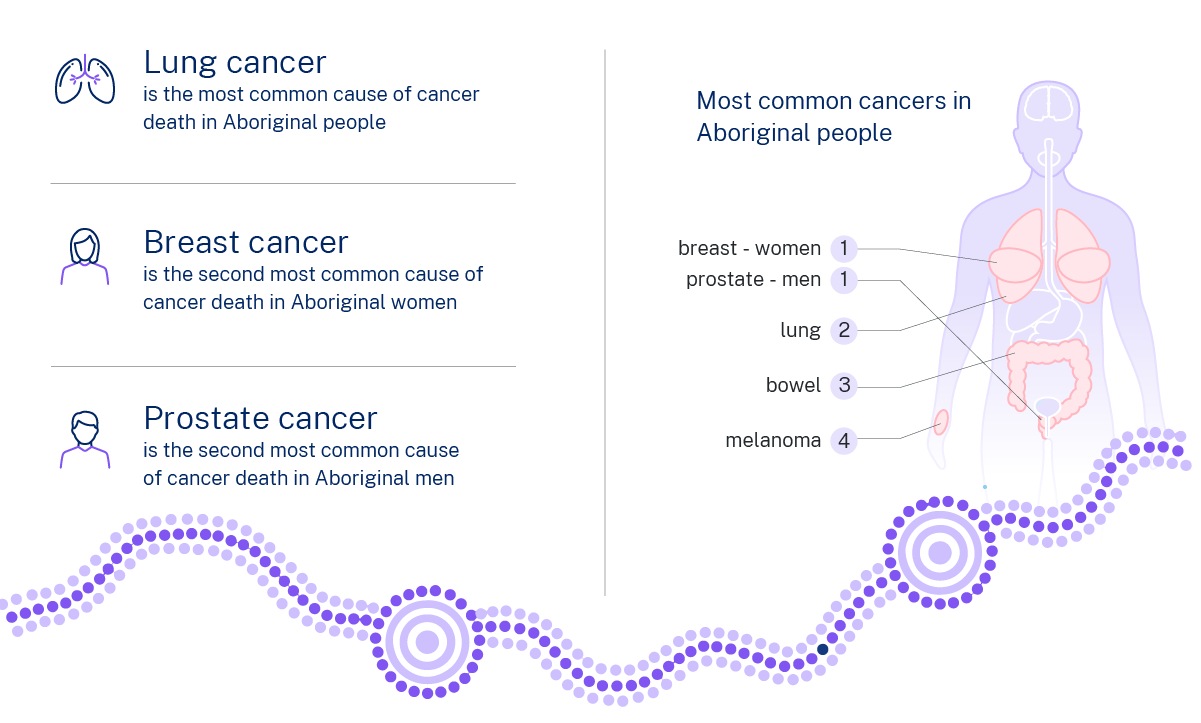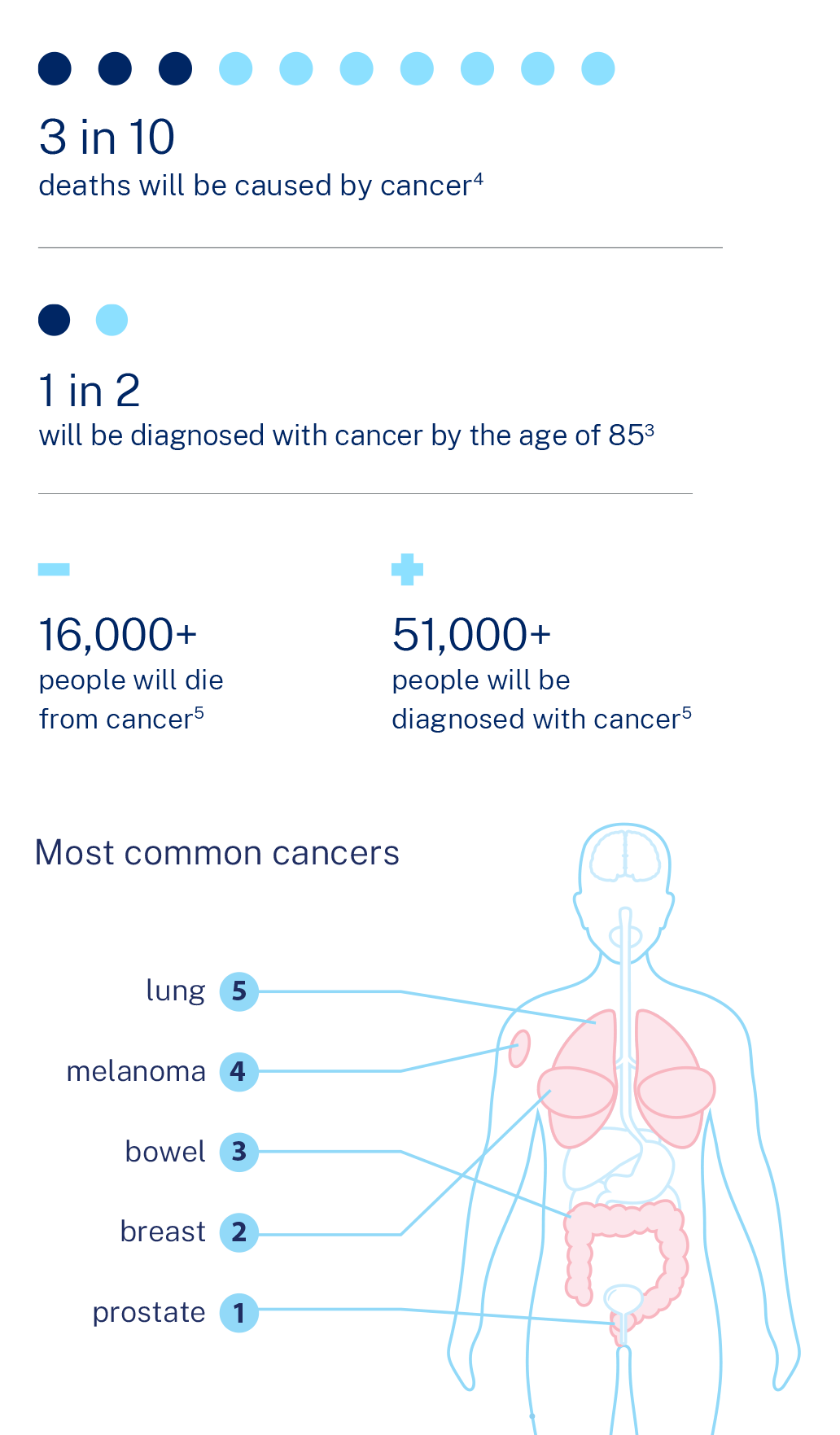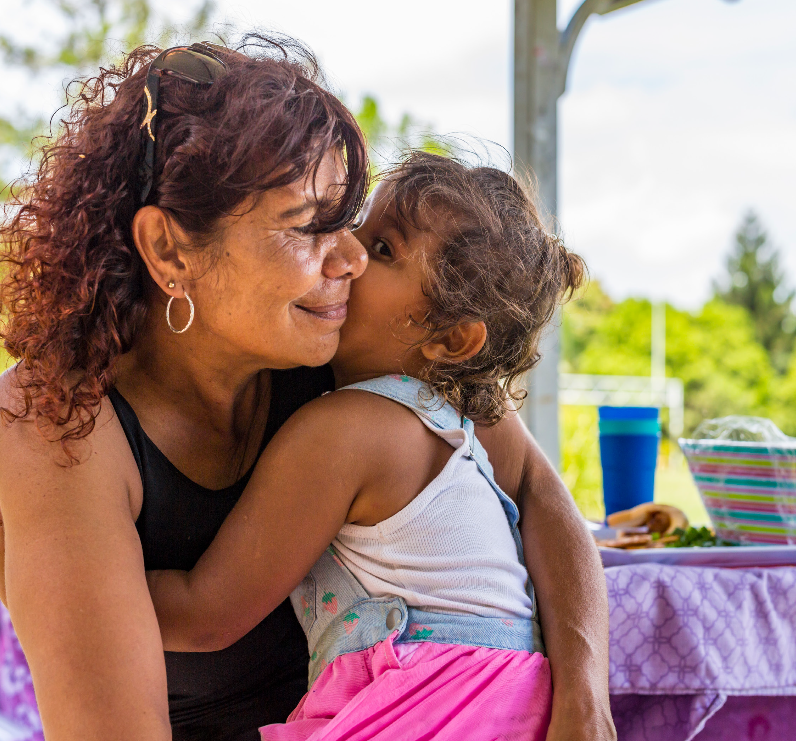The NSW Cancer Plan recognises Aboriginal peoples as the first peoples of Australia and the traditional custodians of the lands in NSW. This plan recognises Aboriginal communities as a priority.
Aboriginal people are more likely to be diagnosed with cancer, are likely to be younger when they are diagnosed and are more likely to die of cancer than non-Aboriginal people.


The reason for inequities in cancer outcomes for Aboriginal people are multiple and complex
The trauma of colonisation and continuing impact of past health policies combined with ongoing experiences of racism and discrimination has led to feelings of mistrust and fear. Fear and capacity issues around leaving community or country for treatment and lack of culturally safe and responsive care are also major barriers for Aboriginal people to access health services.
Fear and stigma about cancer, due to a lack of understanding about the disease, can prevent Aboriginal people from participating in cancer screening or having symptoms checked. This can lead to later diagnosis causing poorer outcomes.
Aboriginal people and communities are also often dealing with complex personal and familial issues and lower levels of health literacy, which impact their health seeking behaviours.
These barriers can also contribute to higher prevalence of certain lifestyle behaviours, such as tobacco use and alcohol consumption which can contribute towards higher cancer incidence.
Culturally safe and responsive care is key
Culturally safe and responsive care is delivered in a way that respects and responds to the diverse needs of people from different cultural and language backgrounds, personal traditions, history, values and family systems. Cultural safety also accounts for factors such as the cultural and social determinants of health, treatment preferences, and preferences for who provides care and in what location. Access to culturally safe and responsive cancer prevention, screening, diagnostic and treatment services and care is key to improving cancer outcomes for Aboriginal people.
How we are working together
The NSW Cancer Plan is aligned with Target One of the National Agreement on Closing the Gap, to 'ensure that Aboriginal and Torres Strait Islander people enjoy long and healthy lives'.
This plan will provide a strengths-based approach to address the impact of cancer in Aboriginal communities. This will be done through strong partnerships with the Aboriginal Health and Medical Research Council of NSW (AH&MRC), Aboriginal Community Controlled Health Services, Aboriginal Health Workers, Aboriginal Community Controlled Organisations and Aboriginal community members in co-designing strategies to achieve equitable cancer outcomes.

The artwork use on this website page and across the NSW Cancer Plan illustrated reflects the Cancer Institute NSW; how it collaborates and shares values with other networks to foster greater knowledge, awareness and success of health services for Australian Indigenous communities. Artwork by Dennis Golding 2016.

